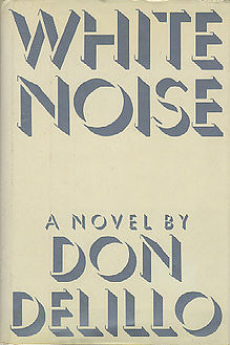
Email: reecejordan98@hotmail.co.uk
Total Article : 168
About Me:18-year-old sixth form student, studying English Literature, History and Government and Politics. My articles will broadly cover topics from the current affairs of politics to reviews of books and albums, as well as adding my own creative pieces, whether it be short fiction or general opinion.

Within White Noise there are tacit forms of consumption – TV and radio. Commenting on the airborne toxic event, which seems like an exaggerated form of the effects of TV and radio in its intangibility, Murray says, ‘The real issue is the kind of radiation that surrounds us every day. Your radio, your TV,’ He then inquires, ‘does something happen to their brains from being exposed to constant rays?’ This question, of the effect of TV and radio on our minds, is answered, I will argue, within Jack’s narrative of the novel.
Ahmad Ghashmari suggests that, ‘TV is as important and influential as the protagonist of the novel, Jack Gladney.’ He never goes on to fully qualify this statement, but the reason is, I suggest, because TV and the narrator are inextricable. Because of the first-person narration we are effectively given Jack’s consciousness, and it is one that has clearly been tainted by television’s markings. This is perhaps most pertinent in the way in which the narration is intermittently jolted with the names of companies. ‘Mastercard, Visa, American Express’ This seemingly nonsensical jolt mirrors that of the narrative interruption of programs when adverts start. This not only highlights the essence of adverts – as bizarre unrelated interruptions rather than benign ‘breaks’ – but also illustrates the insidious effect advertising has on the mind. Because of the inundation of TV and consumer culture, Jack is unable to form a proper narrative without companies prodding his consciousness. – like when his daughter says the words Toyota Celica.
The effect of advertising on the human mind is also seen in the way Jack views objects, especially clothes. He states, ‘Because I’d achieved high professional standing, because my lectures were well attended and my articles printed in the major journals, because I wore an academic gown and dark glasses day and night whenever I was on campus… I knew my German lessons would have to be secret.’ Here, Jack groups his clothing to his dexterity as an academic, as if, like in an advert, they were material signifiers of his ability as a professor. He even states at one point that he cannot teach without wearing them. However, the notion that objects retain anything remotely to do with the personal is soon shown to be illusory. Speaking about his Hitler conference, Jack states, ‘Even in my black gown and dark glasses… I felt feeble in their presence… All I could do was mutter a random monosyllable, rock with empty laughter.’ Jack’s ineptitude is not ameliorated by his clothing; the glitzy advert approach to objects has no grounding in reality.
Image Credits: wikipedia.co.uk

0 Comment:
Be the first one to comment on this article.